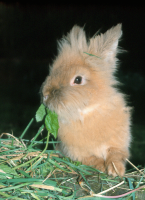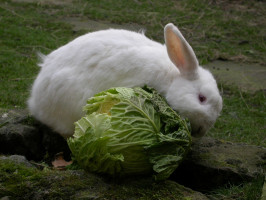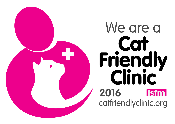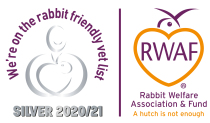FEEDING ADVICE
Dogs and cats are easy to feed with pet foods purchased from the supermarket or pet shop. These are generally fine.
With cats the proviso we would give is to minimise the amount of dry biscuit food that you feed to your cat. These are very high carbohydrate diets and not very suitable for cats who are specialised carnivores. Cats on these diets often get fat and we do see many more diabetic cats than we did 20 years ago. They also have a low water content which is detrimental in cats that are prone to bladder problems or have kidney problems.
There has been an explosion in different diets for dogs recently. Most of these diets are nutritionally fine but there are some points to be made;
RAW feeding - if you use this get a prepared balanced diet & dont just feed meat as this will be calcum deficient. It is important to be aware of the (mainly public) health implications of using this way of feeding your dog. RAW meat may contain pathogens such as salmonella and campylobacter that are normally destroyed by cooking. Your dog may be more likely to get gut upsets & may cope with this but you should take precautions handling their food. A seperate fridge is advised to avoid contaminating human food with RAW food. The dog should not be fed in the kitchen & bacause there is an increased chance of a RAW fed dog shedding salmonella/camplyobacter in its faeces hygienic precautions should be taken. I have certainly seem dogs looking good on RAW feeding but this method of feeding should be avoided in households containing people whose immune systems may be compromised - ie small children, elderly people, pregnant people and those with chronic illnesses.
Grain free is another trend. There is a condition in Border Terriers (Epileptoid Cramping Sydrome) which is associated with gluten antibodies & needs specific dietary management but dogs do not get ceoliac disease and can eat a diet containing grain without any problems. There may however be issues with some of the other ingredients replacing grains - there have been reports of cardiomyopathy in dogs on grain free in the USA & investigations are continuing to identify why this has occurred.
Hypoallergenic is another buzz word on dog food. Its hard to know what this means. Not all dogs with an allergy are allergic to the same thing so if we are investigating a dog for allergy issues we usually advise a diet change based on knowledge of the previuos diet. This is likely to be a single protein source & or involve a prescription hydrolysed protein diet - which are not 'supermarket' diets,
We only sell prescription diets were the food is an important part of the management of specific clinical conditions in dogs and cats.
FEEDING YOUR RABBIT
We see nutritional, predominantly dental problems in pet rabbits that are diet related. Muesli style dry foods are NOT recommended. Rabbits are often selective feeders only eating their favourite
bits leading to an unbalanced diet with insufficient calcium and fibre for health.
A rabbit is adapted to eat grass and weeds. Grass and hay should be available at all times, dandelions and bramble leaves, plantain and most garden weeds are palatable and nutritious. Green vegetables, herbs, pea pods, carrot and radish tops are all good foods for rabbits. Starchy roots like carrots and apples can be fattening so quantities should be limited. Chocolate and sweet treats should never be fed to rabbits. Small quantities of dry pelleted food such as Burgess Superabbit Excel or Supreme Science Selective can be fed but be careful not to overfeed as we see many fat rabbits. Obesity stops a rabbit from being able to eat its caecotrophs which is essential for their health. Obese rabbits can get dirty bottoms predisposing them to fly strike, back problems and are at much greater risk if unwell due to the high probability of developing hepatic lipidosis (fatal). Water bowls as well as water bottles are a good idea to encourage drinking as some rabbits can develop bladder problems. A safe area outside allows the rabbit to browse for its own food, enjoy some sunshine and have fun!
FEEDING YOUR GUINEA PIG
Guinea pigs were just born to eat and are easy to feed. In common with humans and great apes and unlike most other animals guinea pigs cannot make their own Vitamin C and so must get plenty of greens in their diet. As in people a deficiency will lead to Scurvy. Grass, weeds and vegetables must be fed every day and these pets make excellent lawnmowers!
FEEDING PARROTS
We see many parrots especially Grey Parrots that are fed seed and have medical problems as a result of this. Such problems include an increased susceptibility to infections, metabolic bone disease, fatty livers and seizures due to the low calcium. They find the high fat, low calcium components of their diet very palatable and will only eat peanuts and sunflower seeds.
We recommend and stock HARRISONS BIRD FOOD an organic complete pelleted food. The vitamin and calcium levels reduce the risk of painful bone deformities and fractures and birds are less susceptible to respiratory infections. Birds are much healthier on this diet and their feather quality is improved.








